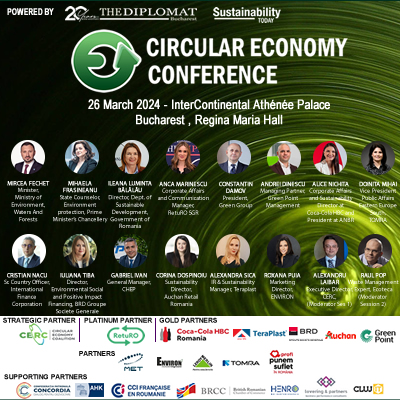The transition toward the net-zero economic model can protect the labor market against climate change related risks and can create up to 300 million new jobs worldwide by 2050, a Deloitte study shows, provided that the decarbonization plans bring together concerted action on behalf of governments and businesses, focusing both on the achievement of environmental objectives and on employees’ protection policies.
The report draws attention to risks generated by the so-called “passive transition”, that focuses on the net-zero target, but causes imbalance on the labor market as a result of spontaneous, disparate measures, ignoring the employees’ needs, and it underscores the need for conducting an active transition, which aims at achieving economic and environmental objectives, while also progressively transforming the labor market and redistributing the human capital active in vulnerable industries to sustainable ones.
In the case of an active transition, the regions that would benefit from the largest number of newly created jobs are Asia-Pacific, that could gain 180 million new jobs by 2050, and Africa, with 75 million, while Europe would also get 21 million new jobs, and the two Americas, 26 million, the report shows. The regions with population active in traditional industries, that are clime and meteorology dependent or have high emissions, are the first targeted by these developments, which means that the new jobs will contribute to transforming economic models, to fighting unemployment, poverty and discrimination, as well as to reducing the economic gap between regions and continents.
The report underscores the importance of preparing the “green” professionals of the future, the so-called “Green Collar” category, by training employees on the new competences needed, and by rewriting the job descriptions according to the ongoing transformations. Examples of “green” jobs include both transformed occupations, such as hydrogen-based metallurgy, electric car manufacturing industry, and completely new jobs, created by the new “net-zero” reality, for example hydrogen installations engineering.
“The study points out the great challenges related to labor market dynamics in the coming 50 years, in the context of the transition to the green economy, but it also reveals several opportunities; among these, the most important is the fact that 80 percent of the skills required for the jobs of the future already exist within today’s workforce. Thus, the entire process can be regarded as one of partial conversion. It is not by chance that 2023 has been designated the ‘European Year of Skills’: current societal and business transformations need to find the professionals in various domains informed and ready to contribute to a sustainable economic growth,” stated Raluca Bontas, Partner Global Employer Services, Deloitte Romania.
The report also emphasizes the importance of a just transition, that makes efficient and equitable investments, building on regenerable sources and “clean” technologies, and supports the development of vulnerable regions and communities, given that the potential for economic growth is very different across geographies because of climatic, cultural and political specificities of every continent and region. Thus, a just transition could reduce the current gaps, the report indicates.
“The study focuses on the need for a systemic and inclusive approach of the net-zero target, without neglecting the effects on the labor market and the differences between geographies, and it offers several practical recommendations for achieving an active and just transition, among which a clear and ambitious planning of decarbonization stages, a coordinated mobilization of governments and industries, as well as an equitable resource distribution and the attraction of the highly-performant human capital toward sustainable industries. These are concerns and solutions that were also on this year’s International Economic Forum’s agenda in Davos, back in January, and they are likely to concentrate in 2023 the EU community efforts, and consequently Romania’s efforts as well, within the framework of the new ‘Green Deal’ Industrial Plan,” stated Sorin Elisei, Director, Deloitte Romania, Leader of Sustainability and Energy Practices.
The Deloitte report also shows that coordinated climate action could contribute to increasing the size of world economy by up to USD 43 trillion by 2070 (net present value). In the opposite scenario, the lack or delay of clime measures can lead to global losses of USD 178 trillion by 2070 (net present value) and to lowering global GDP by over 7 percent.




